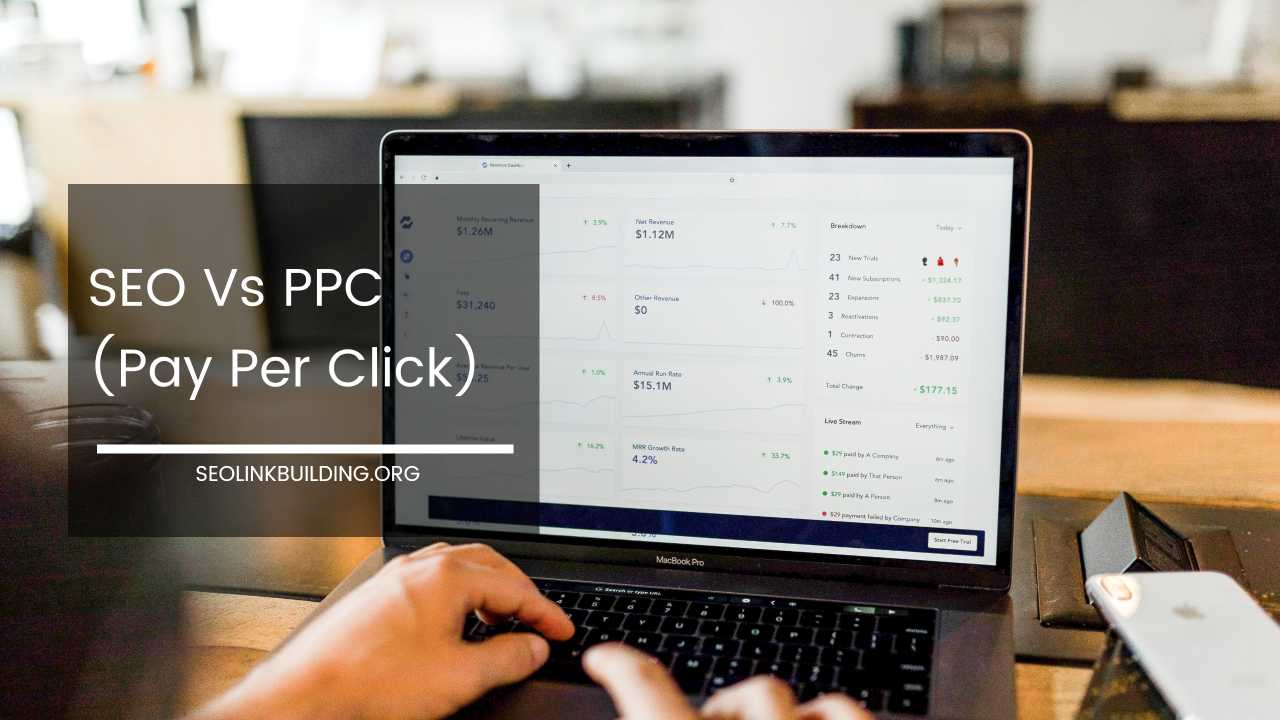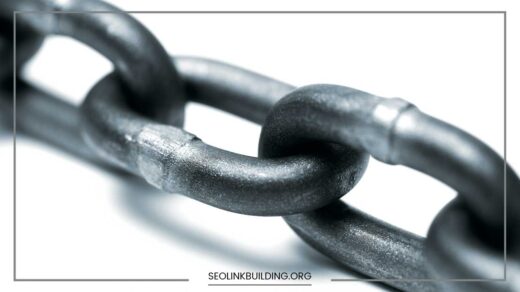Organic vs Paid Traffic: SEO vs PPC

SEO vs. PPC: Unveiling the Champions of Website Traffic
In the Colosseum of digital marketing, two gladiators stand out: SEO (Search Engine Optimization) and PPC (Pay-Per-Click) advertising. Both SEO and PPC fight for the same crown: driving targeted users to your website.
But their techniques are as different as a net and a trident. This comprehensive guide will equip you with the knowledge to understand the core principles of SEO and PPC, their strengths and weaknesses, and ultimately, how to combine them for an unbeatable digital marketing strategy.
SEO: The Organic Growth Engine
Imagine your website as a well-maintained chariot attracting organic attention during a bustling Roman parade. SEO is the meticulous process of optimizing your website and its content to rank higher in search engine results pages (SERPs) for relevant keywords.
When users embark on a quest for information related to your products or services, a well-optimized website has a greater chance of appearing at the forefront of the organic search results, those unpaid listings below the advertisements.
Here’s a deeper dive into how SEO works:
- Content is King (and Queen): Search engines, like the emperors of information, prioritize websites with high-quality, informative, and engaging content that caters to the user’s search intent. Don’t just throw out content for the sake of it; focus on creating valuable resources that answer user queries comprehensively.
- Keyword Magic: Identifying and strategically incorporating relevant keywords throughout your website is crucial. But remember, keywords are like spices – a dash adds flavor, but overdoing it overpowers the dish. Focus on creating content that naturally uses keywords and avoid keyword stuffing.
- Technical Prowess: Behind the scenes, technical SEO ensures your website is mobile-friendly, has a blazing-fast loading speed, and boasts a clean and secure code structure. Just like a well-oiled chariot needs sturdy wheels and a strong axle, your website’s technical foundation is essential for optimal performance.
- Backlink Bonanza: Earning backlinks, which are links from other websites pointing to yours, is a significant SEO ranking factor. Backlinks act as a vote of confidence for your website in the eyes of search engines. Imagine other websites recommending your chariot to their audiences – that builds trust and gets you noticed!
Benefits of SEO:
- Cost-Effective: Unlike a gladiator constantly needing new weapons, SEO is a long-term investment. Once your website ranks well organically, you don’t have to pay for each click, leading to sustainable growth over time.
- Builds Brand Credibility: Ranking high in organic search results fosters trust and establishes your website as a reliable source of information. It’s like having a champion’s reputation preceding you, attracting users who value your expertise.
- Targeted Traffic: SEO helps attract users who are actively searching for what you offer, increasing the likelihood of conversions. Imagine an audience who specifically came to the parade to see your chariot – they’re highly interested!
- Sustainable Growth: SEO efforts compound over time, leading to a steady stream of organic traffic. It’s like building a strong, loyal fanbase that keeps returning to your chariot display year after year.
Drawbacks of SEO:
- Time Commitment: Building a strong SEO strategy takes time and consistent effort. It can take months, or even a year, to see significant results. Patience is key – remember, Rome wasn’t built in a day!
- Algorithmic Dance: Search engine algorithms are constantly evolving, like the ever-changing strategies of your opponents in the Colosseum. It’s crucial to stay updated on the latest SEO best practices to keep your chariot competitive.
- Competitive Landscape: Ranking for competitive keywords can be challenging, especially in highly saturated industries. Imagine facing off against a team of experienced gladiators – it takes exceptional skill and strategy to stand out.
PPC: The Fast Track to Visibility
Think of PPC advertising as a chariot pulled by powerful, swift horses, allowing you to cut through the crowd and gain immediate visibility. PPC allows you to display targeted ads on search engines like Google and Bing.
You bid on specific keywords, and whenever someone searches for those terms, your ad may appear at the top of the search results, typically designated as “sponsored” or “ad”. You only pay when someone clicks on your ad, hence the term “pay-per-click.”
Here’s a breakdown of the key elements involved in a successful PPC campaign:
- Campaign Creation: Define your target audience with laser precision. Who are you trying to reach with your chariot? Are they young athletes or wealthy merchants? Tailor your message accordingly. Set a budget that aligns with your goals and craft compelling ad copy that entices users to click, just like a captivating chariot display would draw in the crowds.
- Keyword Targeting: Consider both search volume and competition when selecting keywords. High-volume keywords might seem appealing, but if the competition is fierce, you might end up paying a hefty price per click with little return. Look for a balance between relevance, search volume, and cost.
- Landing Page Optimization: Design a dedicated landing page that aligns with your ad copy and seamlessly converts clicks into leads or sales. Imagine a thoughtfully designed chariot pit stop – it should be visually appealing, informative, and encourage visitors to take the next step, whether it’s making a purchase or signing up for a newsletter.
Benefits of PPC:
- Immediate Results: Unlike SEO, which takes time to build momentum, PPC offers a faster way to gain visibility and drive traffic to your website. It’s like whipping your horses and surging to the front of the parade route.
- Laser-Targeted Audience: PPC platforms provide granular targeting options, allowing you to reach users based on demographics, interests, and online behavior. Imagine having a herald announce your chariot’s arrival to a specific group most likely to be interested – that’s the power of PPC targeting!
- Measurable Performance: Track the performance of your PPC campaigns in real-time, enabling you to optimize your strategy and maximize your return on investment (ROI). It’s like having a chariot inspector constantly giving you feedback on how to improve your speed and efficiency.
- Campaign Flexibility: Easily adjust your PPC campaigns on the fly, adding or removing keywords, and modifying bids based on your budget and goals. Need to switch horses mid-race? No problem! PPC allows for agile adjustments.
Drawbacks of PPC:
- Ongoing Cost: Unlike organic traffic earned through SEO, PPC is an ongoing expense. You need to continuously invest in your campaigns to maintain website traffic. It’s like feeding your horses – they need sustenance to keep going!
- Competition Drives Up Costs: Highly competitive keywords can be expensive, potentially leading to a significant cost per click. Imagine competing against other wealthy charioteers who are willing to spend a fortune to win – it can get pricey!
- Click Fraud: There’s a risk of fraudulent clicks from bots, which can inflate your PPC budget. It’s like having sneaky spectators clicking on your chariot display without any real interest – frustrating and costly.
- Reliance on Paid Placement: Once you stop paying for ads, your website traffic from PPC will cease. It’s like your chariot disappearing from the parade once the race is over. Organic SEO provides a more sustainable long-term presence.
SEO vs. PPC: The Ultimate Showdown
So, which one reigns supreme: SEO or PPC? The answer, like most things in marketing, is: it depends. Here’s a ringside analysis to help you decide which approach best suits your specific goals and resources:
Choose SEO if:
- You have a long-term perspective and are willing to invest time and effort in building a sustainable organic presence.
- Your target audience is actively searching for the products or services you offer.
- You have a content marketing strategy in place or are willing to develop one.
- You’re on a budget and want to maximize your return on investment in the long run.
Choose PPC if:
- You need immediate results and want to drive traffic to your website quickly.
- Your target audience is well-defined, and you have a clear understanding of their online behavior and search terms.
- You have a specific marketing campaign with a defined timeframe and budget.
- You want to test different messaging and landing pages to optimize your conversion rates.
The Dream Team: SEO and PPC Working Together
Imagine a chariot pulled by powerful horses (PPC) that also boasts a skilled charioteer (SEO) navigating the track expertly. That’s the power of combining SEO and PPC for a winning digital marketing strategy. Here’s how they can complement each other:
- PPC Keyword Research: PPC campaigns can provide valuable insights into user search behavior and inform your SEO keyword strategy. By analyzing which keywords generate the most clicks and conversions in your PPC campaigns, you can identify relevant keywords to target in your SEO efforts.
- SEO Content Optimization: High-performing content from your SEO strategy can be repurposed for PPC campaigns. For example, blog posts or website content can be adapted into compelling ad copy or landing page content.
- Brand Awareness Boost: A combination of SEO and PPC can significantly increase your brand awareness. PPC puts your brand at the forefront of search results, while SEO ensures your website remains visible organically over time. It’s a double whammy for brand recall!
- Improved Conversion Rates: By using PPC landing pages optimized for conversions and leveraging SEO to attract qualified traffic, you can increase your website’s overall conversion. This translates to more leads, sales, or whatever your desired outcome might be. Imagine your chariot attracting a large audience (brand awareness) and then converting those viewers into loyal customers (improved conversions).
The Final Lap: Choosing Your Champions
There’s no one-size-fits-all answer to SEO vs. PPC. The best approach depends on your specific circumstances, budget, and marketing goals. Here are some additional factors to consider:
- Industry Competitiveness: If you’re in a highly competitive industry, you might need to leverage both SEO and PPC to gain traction. SEO can help you establish long-term visibility, while PPC can provide a quick boost to get you noticed.
- Website Age and Authority: Newer websites with limited domain authority might benefit more from a PPC push to get initial traffic, while established websites can focus on SEO to solidify their organic presence.
- Campaign Goals: Are you aiming for long-term brand building or a short-term sales promotion? SEO excels at the former, while PPC is perfect for the latter.
The Champion’s Mindset: Ongoing Optimization
Remember, both SEO and PPC are ongoing processes that require continuous monitoring and optimization. Here are some tips to stay ahead of the curve:
- SEO: Regularly audit your website’s technical SEO health, update content with fresh information, and stay updated on the latest search engine algorithms.
- PPC: Monitor your campaign performance, analyze click-through rates (CTRs), and adjust your bids and keywords based on the data. A/B test different ad copy variations to see which ones resonate best with your audience.
By understanding the strengths and weaknesses of SEO and PPC, and by potentially combining them into a cohesive strategy, you can equip your website for the ultimate digital marketing victory.
Remember, it’s not about one gladiator overpowering the other, but about harnessing the unique skills of each to achieve lasting dominance in the Colosseum of online traffic.













